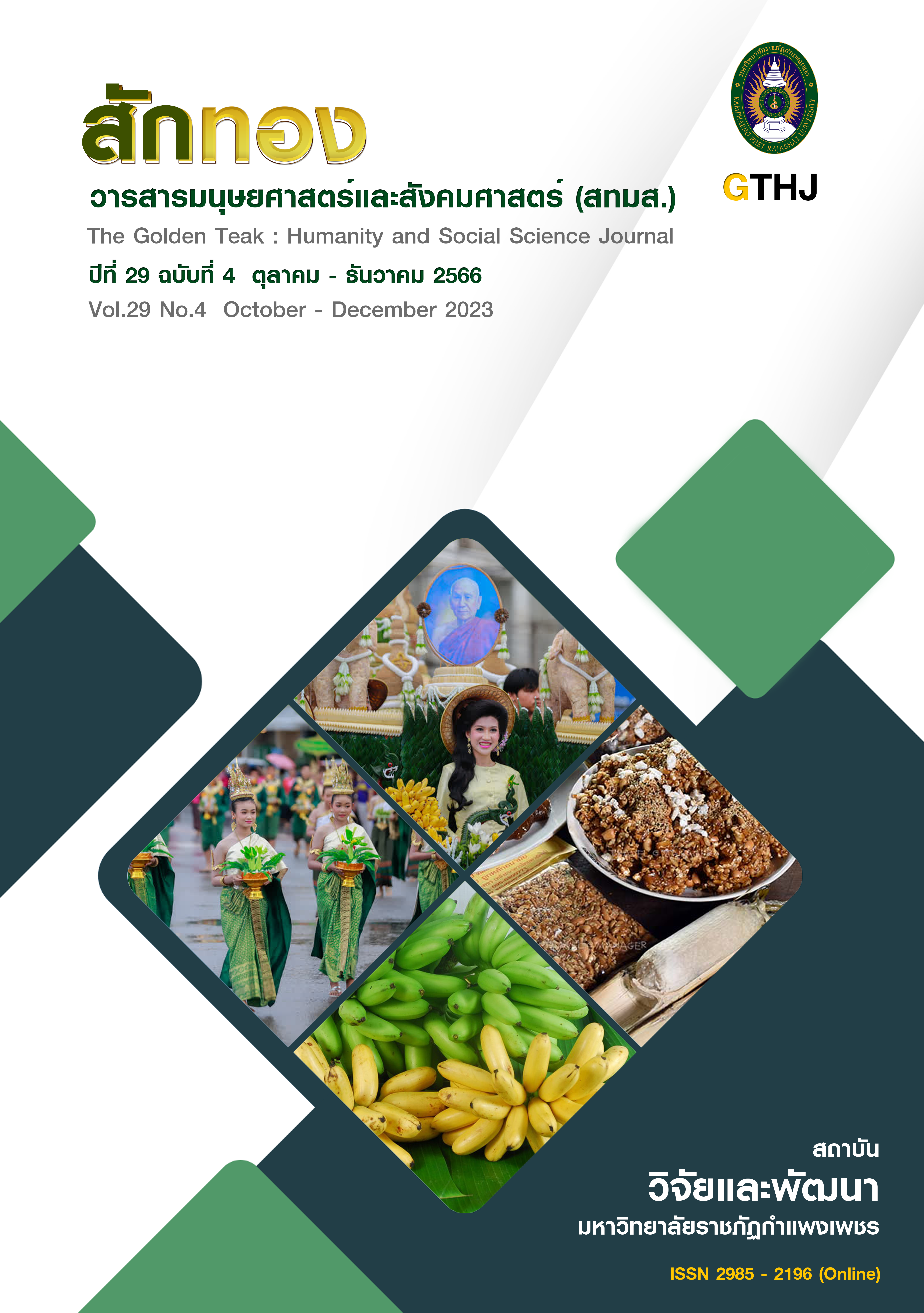Training Process Evaluation a Case Study of One Beverages Company’s Management Development Program
Main Article Content
Abstract
This research aims to assess procedures of organizing a training course; the management training programs in one Beverage Company, assessing by eight factors for successful training. This is qualitative research. Data was collected by secondary data and in-depth interviews on 2 training managers, and 10 trainees. Results revealed the unsuccessful factors. Training goals were not communicated to the trainees. Training content was not arranged for ease of understanding. Training types did not help to enhance skills to a required level. Applications of the training did not meet training goals. This research allows training managers to use it to design and manage for a successful training program. This research also helps to identify a trap in conducting a training program.
Article Details

This work is licensed under a Creative Commons Attribution-NonCommercial-NoDerivatives 4.0 International License.
บทความที่ได้รับการตีพิมพ์เป็นลิขสิทธิ์ของวารสาร สักทอง : วารสารมนุษยศาสตร์และสังคมศาสตร์ สถาบันวิจัยและพัฒนา มหาวิทยาลับราชภัฏกำแพงเพชร
ข้อคิดเห็นใดๆ ที่ปรากฎในวารสารเป็นวรรณกรรมของผู้เขียนโดยเฉพาะ ซึ่งมหาวิทยาลัยราชภัฏกำแพงเพชรและบรรณาธิการไม่จำเป็นต้องเห็นด้วย
References
Ahmed, J.U. (2010). Documentary research method: New dimensions. Indus Journal of Management & Social Sciences, 4(1), 1-14.
Akrofi, S. (2016). Evaluating the effects of executive learning and development on organizational performance: implications for developing senior. International Journal of Training and Development, 20(3), 177-199.
Bhatti, M. A., & Kaur, S. (2010). The role of individual and training design factors on training transfer. Journal of European Industrial Training, 34(7), 656-672.
Diamantidis, A.D. & Chatzoglou, P.D. (2012). Evaluation of formal training programmes in Greek organisations. European Journal of Training and Development, 36(9), 888-910.
Ghosh, P., Satyawadi, R., Joshi, J. P., Ranjan, R. & Singh, P. (2012). Towards more effective training programmes : a study of trainer attributes. Industrial and Commercial Training, 44(4), 194-202.
Hamza, M. (2012). Training material development guide. Swedish Civil Contingencies Agency (MSB).
Juito, S. (2001). Systematic Training. Nontaburi : Sukhothai Thammathirat Open University Press. [In Thai]
Kitpreedachusit, B. (2005). Research methodology in social sciences. Bangkok : Chamchuri Product. [In Thai]
Kityanyong, S. & Na Takua Thung, A. (2007). Training Arrangement Techniques to develop personnel effectively. Bangkok : Technology Promotion Association (Thailand-Japan). [In Thai]
Lanigan, M.L. (2010). How to Create Effective Training Manuals. Illinois: Third House Inc.
Plodplua, U. (2013). Data Analysis in Phenomenology Studies. Nursing Journal of The Ministry of Public Health, 23(2), 1-10.
Smithikrai, C. (2015). Training for personnel in the organization. Bangkok : Chulalongkorn University. [In Thai]
Sofo, F. (2007). Transfer of training: a case study of outsourced training for staff from Bhutan. International Journal of Training and Development, 11(2), 103-120.
Somasundaram, U.V. & Egan, T.M. (2004). Training and Development: An Examination of Definitions and Dependent Variables. In Paper presented at Academy of Human Resource Development International Conference, Texas. 2004, March 3-7 (pp.850-857). USA: Austin, Texas.
Suwan, S. (2005). Qualitative Research Design. [Online]. Available : https://pirun.ku.ac.th/~fedusmsw/publication/ p1_1.pdf [2017, May 22].


